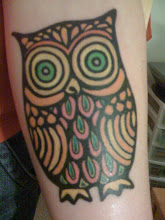This evening, while poking around my Google Reader, I came across this article in Good Magazine:
Anne Trubek on Why We Shouldn’t Still Be Learning Catcher in the RyeNaturally, I was intrigued and so I read the piece and continued on to the comments where I found the following:
THE ORIGINAL COMMENT POSTED:I first read Catcher in the Rye three years ago when I was a freshman in high school, and I honestly believe that Catcher in the Rye is far more appealing to adolescents than any of the books that you have listed.
No other book can resonate with so many adolescents. Look at the books in your "revised syllabus." The characters of these books are "Dominican adolescents," a "teenage outcast" who falls mute, "two eighth-graders in a Columbine-style school massacre," a daughter who must deal with "life on the road," "a scholarship boy with literary ambitions," etc. How could any of these characters be 'relatable' to a wide range of teenagers? Having experienced the displeasure of reading these books, and others like them, I can firmly state that none of the characters within them resonated with me, or the majority of my peers.
Holden's problem is simple. He isn't ready to accept the world for what it is. That is the essence of adolescence, and the reason for his timelessness.
As I moved on to the next article in my RSS Feed, I felt that gnawing little compulsion to respond and decided that I've let enough of these comments by in my life and I can spare the few moments to tell this commenter what I think. I am sensitive to the fact that he is an incoming high school senior.
MY RESPONSE:I would like to comment on this statement:
The characters of these books are "Dominican adolescents", a "teenage outcast" who falls mute, "two eighth-graders in a Columbine-style school massacre," a daughter who must deal with "life on the road," "a scholarship boy with literary ambitions," etc. How could any of these characters be 'relatable' to a wide range of teenagers?
To respond, none of the identities listed are any more isolated or less relatable than that of a privileged white man. In fact, I would argue that the alienation felt across identities of race, class, gender, ability, sexuality, and even environment makes these characters more relatable and even challenges readers to connect with characters on a number of levels.
I appreciate that you spoke to your personal experience with these books and with Catcher in the Rye, but I would also say that the conflicts in these other books are no less universal than Caufield's.
I am grateful for a few suggested alternatives to Catcher in the Rye as - while I acknowledge its importance - I am also sensitive to the importance of having diversity among the authors and characters represented in any English literature curriculum.




2 comments:
Nice response! Did your response get a response? Also...where can I find a copy of that list?
Jenny
Here goes my first time blogging, I think...I agree with Jenny - hi by the way if it's who I think you are...Catcher and the Rye was a pivotal piece for me in high school that I read, but as I have become more conscious with my understanding of privilege and social justice issues, the book situates the white male perspective as common and lacks the ability to be seen through an intercultural perspective.
- Pam
Post a Comment